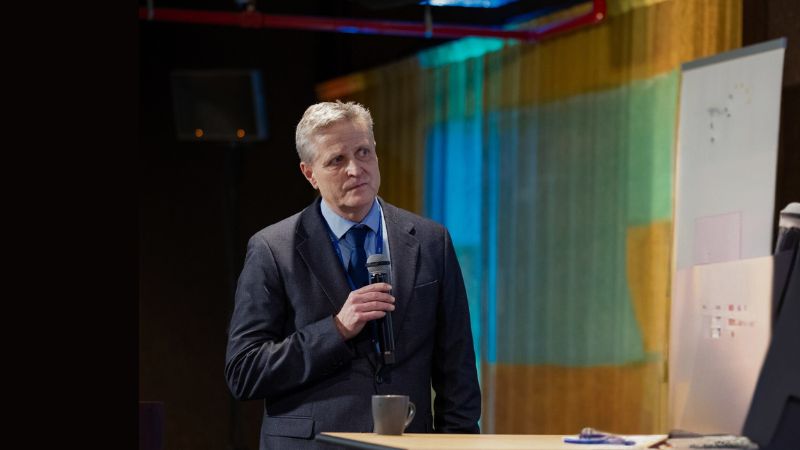

Members and partners of CESI as well as institutional representatives discussed how to shape the final report of the European Parliament, which is expected to be adopted in March 2026, and how the European Pillar of Social Rights can be used to tackle staff shortages in the health care sector: CESI’s co-funded capacity building project 'PillAct' on the Eruopean Pillar of Social Rights has shown that understaffing, overload, gender inequality, poor infrastructure, and brain drain all undermine workers’ rights and care quality.
Speakers shared evidence and national experiences:
Jorge Cabrita, Research Manager of Eurofound, presented early results from the 2024 European Working Conditions Survey, showing how healthcare jobs have become more stressful and less attractive since the pandemic. Improving job quality is essential to keep current staff and attract new ones, he stressed.
Gorica Djokic, President of the Serbian Trade Union of Doctors and Pharmacists and CESI Vice-President of CESI's Expert Commission ‘Health Services’, reported about serious shortages in her country - around 4,000 nurses and 1,000 specialist doctors. Efforts to bring workers back and improve conditions exist, she said, but noted that problems continue due to low pay, weak social dialogue and high emigration. She also criticised new night-shift rules, introduced without union consultation.
Joséfine Declaye, Senior Policy Officer at the European Specialists Nurses Organisation (ESNO), highlighted that many patients face financial hardship, creating moral stress for nurses. She stressed how mentorship and stronger education pathways can improve staff recruitment and retention.
Paul De Raeve, Secretary General of the European Federation of Nurses Associations (EFN), underlined his organisation's strong support for the draft report of the European Parliament. He argued that keeping workers is as important as hiring new ones. He referred to evidence which shows that nurse-to-patient ratios improve outcomes for patients in terms of lower mortality, fewer readmissions, shorter stays and better infection control. Safe staffing also saves money by preventing complications and protects nurses from burnout, violence, and legal risk, he emphasised. He called for EU support through an occupational safety and health directive that would require each Member State to set and report on its own staffing standards via social dialogue.
Paloma Repila, President of CESI’s Expert Commission ‘Health Services’, presented CESI’s advocacy on the draft report. She outlined CESI’s position on staff shortages in the health care sector and CESI's aim to ensure that its proposals for amendments are incorporated into the report. The lobby work on the report will continue after meetings with several shadow rapporteurs, she said.
Hendrik Meerkamp, Senior Policy Officer at CESI, explained how the European Pillar of Social Rights, the European Semester process and other EU instruments could help address shortages and improve working conditions. While the Pillar provides a strong normative basis for quality health care and decent work, it is not legally binding, he said, while the European Semester, offers a soft governance tool through country reports and the social scoreboard, enabling trade unions and civil society to advocate for change. He mentioned that the EU is increasingly linking EU funding to progress on country-specific recommendations - a trend that should be strengthened, especially in the health care sector.
Closing the meeting, CESI Secretary General Klaus Heeger, emphasised: "Addressing health shortages across Europe is one of the fundamental discussions we need for the sustainability and resilience of our societies. Ethical recruitment, safe staffing levels, improved working conditions and flexible working arrangements are the only way forward. Investments must be made at the right levels to ensure high care standards and equal working conditions for everyone in the EU."

Image Gallery
CESI@noon: Tackling health care workforce crises
Related videos
Similar Posts


Building future-ready civil protection workplaces in Athens
At CESI’s eQualPRO event in Athens, stakeholders exchanged on how digitalisation and artificial intelligence are transforming civil protection services and how social dialogue can help ensure fair, inclusive and future-ready workplaces.
Get in touch
with us
Confédération Européenne des Syndicats Indépendants (CESI)
Contact form
Stay up to date
Don’t miss a thing and subscribe to our newsletter
Subscribe now and receive newsletters and much more!



